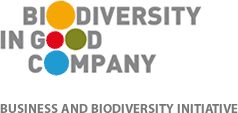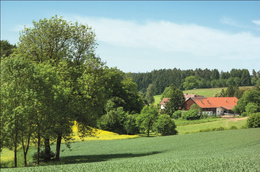Business and Biodiversity: HiPP

HiPP
Commitment

HiPP is not only interested in providing excellent baby food products from gentle-to-the-environment ingredients, it is also highly interested in environmental protection.
Preserving biodiversity is, together with climate change, one of society’s greatest challenges. The global loss of species and the subsequent projected long-term economic consequences are startling. HiPP is dependent upon functioning ecosystems for its organic product line. To reduce the risks and create new opportunities, HiPP has integrated the topic of biological diversity into its corporate sustainability management system.
HiPP is one of the founding members of the ‘Biodiversity in Good Company’ Initiative and has been actively participating in projects from the beginning. As a company, HiPP is not only interested in doing its part to protect biodiversity and contribute to a sustainable and livable future, but it advocates for an open dialog among the society, the business world and politics.
As one of the leading global manufacturers of organic food, it is in HiPP’s interest to protect its materials supply and therefore biodiversity. For this reason, HiPP procures its supplies from organic farms that operate in harmony with nature and are actively opposed to green gene engineering. Additionally, HiPP has been taking the following measures to protect biodiversity:
- Around 1,000 small farmers in the autonomous province of Talamanka, Costa Rica cultivate and grow bananas directly in the rain forest, not in plantations, and without the use of pesticides, in a HiPP fair trade project. In this way the baby food manufacturer is able to guarantee its supply of organic, fair trade bananas.
- In an effort to improve corporate biodiversity protection, HiPP has set up a pilot project that tests environmental measures on a model plant. The goal is to design a profitable method for supporting biodiversity.
- In order to protect rainforests from clear cutting, HiPP only uses paper and packaging made from recycled paper or FSC certified sources.
- In an effort to fight over fishing in oceans, HiPP also ensures the fish it uses for its own production and company catering only comes from organic or MSC certified sources.
- Through regular trainings and activity days, HiPP is able to inform its employees about the topic of biodiversity and the importance of protecting it.
- HiPP does its part to fight against green gene engineering by supporting information books about the risks of agrochemicals published for school children and handed out in classrooms.
Benefit
HiPP’s ingredients sources are site where the environment is protected. This baby food manufacturer is one of Germany’s pioneers of ecological farming.
For more than 50 years, HiPP has been procuring the materials it needs to produce high-quality baby food from organic farms. To maintain such production standards and to expand its product line, HiPP is reliant upon organic agricultural practices and sound ecosystems. It is with this in mind that the company supports the projects listed above in sustainable business practices. Today, more than 6,000 organic farmers cultivate HiPP’s fruit and vegetables on over 15,000 ha of land. This means that 15,000 ha of ground and ca. 122.5 million cubic meters of groundwater are free of artificial fertilizers and pesticides.
A consistent shift towards renewable energy (biomass power stations, biogas plants, green energy, solar power, and full thermal insulation) has enabled HiPP to operate a completely CO2 neutral headquarters and manufacturing plant in Pfaffenhofen, Germany. This equates to a CO2 reduction of over 13,000 tons per year.
FactBox HiPP

Headquarters
Pfaffenhofen, Germany
Major Products
Baby food, Baby care
Global employees
ca 3.650